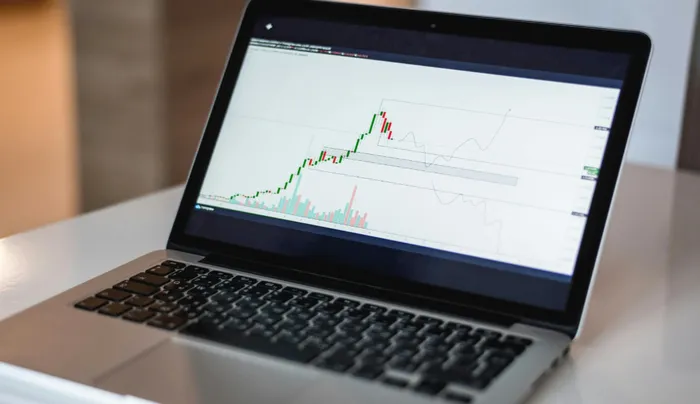
The writer says it is important to understand the asset to be invested in.
Image: Pexels.com
ONLINE trading platforms have become popular, given the ability to access the internet easily, and smartphone advancements have sped up since 2010.
Retail traders to access global markets with just a few clicks, something that was the preserve of the ultra-wealthy. However, while technology has lowered barriers to entry, it has also amplified risks, especially for inexperienced traders.
I’ve witnessed individuals make life-changing gains and devastating losses from online trading. This guide outlines the critical dos and don’ts to help you navigate the markets wisely.
Understand the asset to be invested in. Never invest in stocks, cryptocurrencies, or forex based on hype alone. Analyse fundamentals (P/E ratios, earnings reports) for stocks, or macroeconomic factors for forex. Use reliable sources such as the JSE, other exchange official notices, or central bank announcements.
Do not be motivated by social media influencers. Learn chart patterns (for example,, head-and-shoulders, moving averages), which are referred to as technical analysis. It is vital always to consider fundamental analysis as well, which includes the financials of the company to be investing in or the general macro economy when considering FX or commodities.
Start small and diversify and always apply a risk management strategy. For example, allocate only 1 to 5% of your portfolio to high-risk trades. If you have R100 000, limit speculative trades to R1 000 to R5 000. Diversification is key to good trading and investing, spread investments across sectors (tech, healthcare, commodities) and asset classes (stocks, bonds, ETFs).
Use the stop-loss strategy to protect your capital. Orders with stop loss will automatically sell an asset if it drops below a set price (for example, 5 to 10% below your entry), preventing emotional decisions during volatility.
Keep emotions in check and avoid the fear of missing out. Just because a stock is rising doesn’t mean you should buy at its peak. Stick to your strategy. Similarly, don’t chase losses. If a trade fails, accept it. Revenge trading often leads to bigger losses.
Choose an approved trading platform. Always use FSCA-approved brokers, such as banks and large brokers. Beware of scammers. Perform detailed research before parting with a single cent is important. Compare brokerage fees to ensure value for money. However, ultra-low fees may signal a scam.
Always remain updated on market news and use economic calendars to track events like US Fed rate decisions or SA budget speeches, which move markets.
Track earnings season. Companies like Naspers or Prosus can swing 10%+ post-earnings. Document your trades, keep a journal, and record entry/exit points, reasons for trades, and outcomes. Review monthly to identify patterns. This may be the best starting point, and spend a month doing paper trades, that is, write down ghost trades that you make without spending money. It will give one a sense of how the markets work without risking capital.
Don’t trade without a plan. No strategy is the same as gambling. Define your goals (short-term/day trading vs long-term investing) and risk tolerance.
Always avoid "get rich quick" schemes. If a Telegram group promises 500% returns, it’s likely a pump-and-dump scam. There is no free money.
Don’t overleverage. Leverage is a double-edged sword. Always remember that 50:1 leverage can amplify gains but also wipe out your account. A 1% move against you with 50:1 leverage in forex means a 50% loss. In South Africa, the FSCA caps leverage for retail traders (for example., 20:1 for forex). However, this can be risky for beginners.
Don’t ignore taxes. Trades are subject to income tax, and assets held for long periods are subject to Capital Gains Tax (CGT). Keep records and declare all trades to SARS.
Tax Implications: Frequent trading may classify you as a "professional trader," subject to income tax at higher tax rates. Please don’t follow the hype from social media. Avoid the hype created by well-known faces who are not finance specialists. These are most likely AI scams.
Don’t neglect security. Beware of phishing scams with fake broker emails or "customer support" calls that can steal login details. Use two-factor authentication (2FA). Always avoid public Wi-Fi for
Hackers can intercept data. Use a VPN if necessary. Don’t day trade without experience. The statistics are against you, with over 90% of day traders losing money. Start with swing trading (holding for days/weeks) instead.
Never put all funds in one investment or one asset class. Start with ETFs: Satrix Top 40 or Sygnia S&P 500 offer diversified exposure with low fees.
Practice first by using demo accounts to test strategies; and beware of volatility. Forex traders must monitor political/economic events closely, as this is for experts.
Online trading offers unprecedented opportunities but demands discipline. By following these dos and don’ts - prioritising research, risk management, and emotional control - you can tilt the odds in your favour. Remember, The market rewards patience, not impulsivity. Happy trading.

Advocate Lavan Gopaul
Image: File
Advocate Lvan Gopaul is the director of Merchant Afrika.
** The views expressed do not necessarily reflect the views of IOL or Independent Media.
Related Topics: